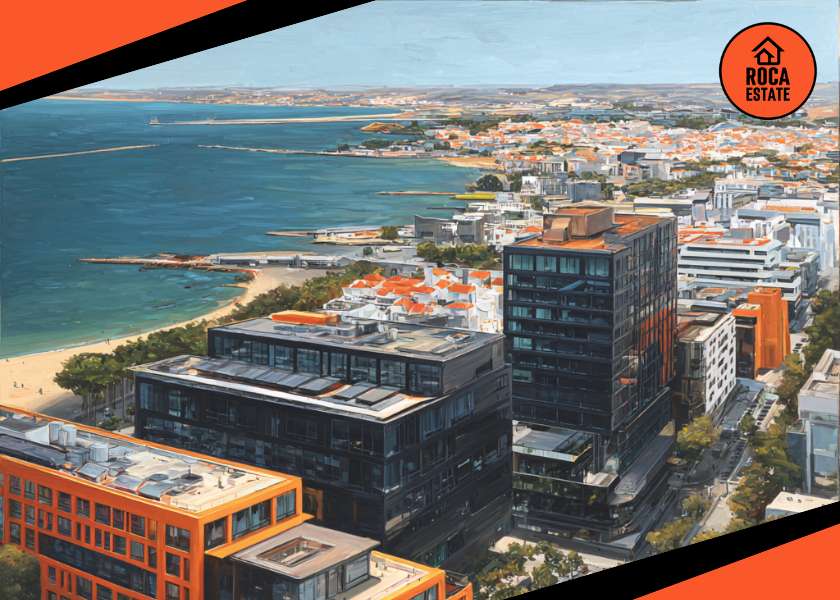The second quarter of 2024 showed a continued and robust growth in Portugal’s real estate market, highlighted by both an increase in house prices and the number of transactions. For real estate investors considering entering the Portuguese market, this report provides important metrics to guide investment decisions.
1. House Price Growth
- In Q2 2024, the House Price Index (HPI) recorded a 7.8% year-on-year increase, a notable rise from the previous quarter (up by 0.8 percentage points). The growth was more pronounced in existing dwellings, where prices rose by 8.3%, compared to a 6.6% increase in new properties.
- Compared to the first quarter of 2024, house prices increased by 3.9%, indicating a steady price escalation in both new and existing homes.
This continuous growth suggests that property values in Portugal are appreciating at a healthy pace, making it an attractive proposition for long-term investors. However, rising prices could mean higher entry costs, necessitating careful property selection.
2. Transaction Volume and Value
- The number of housing transactions increased by 10.4% year-on-year in Q2 2024, reaching 37,125 units, a clear reversal from the negative growth observed in previous quarters. This suggests renewed confidence in the market.
- The total value of transactions rose by 14.1% to €7.9 billion. Of this, €5.7 billion came from existing dwellings, indicating stronger investor interest in established properties over new builds.
The increase in transaction volume alongside the rise in prices demonstrates a dynamic market with high demand, potentially driven by local buyers, institutional investors, and international interest.
3. Regional Analysis
- Regional data indicates that the North region accounted for the largest share of transactions (29.6%), followed by Greater Lisbon (18.9%), and the Center region (15.9%). The Algarve, a key destination for international buyers, saw a decline in its share of transactions, now accounting for 7.6% of the total.
- In terms of transaction value, Greater Lisbon remained the most valuable region, with 32.2% of the total value, followed by the North (24.4%).
For investors, the regional disparity in both transaction volume and property value underscores the importance of location. Prime regions like Lisbon and Porto are still hotspots, but competition and pricing may be fiercer, while areas like Algarve are showing signs of saturation.
4. International Buyer Trends
- Notably, purchases by foreign buyers saw a slight reduction of 2.8% year-on-year, marking a shift from previous years. Transactions involving European Union buyers increased slightly, while non-EU buyers, which have historically been a significant force in Portugal’s real estate market, showed a decline of 10.2%.
This shift suggests that while international interest remains strong, there are signs of cooling in specific segments, possibly due to global economic factors or regulatory changes.
Conclusion: Is Portugal Still a Good Investment Destination?
The Portuguese real estate market remains attractive for investors, driven by rising property prices and increased transaction activity. The consistent price appreciation suggests solid returns for those investing for capital gains. However, entry costs are also rising, particularly in popular regions like Lisbon and Porto, which may lead to higher competition among investors. For those looking to invest, considering emerging regions or more affordable markets outside the main urban centers may offer better opportunities for growth.
While international demand has slightly waned, especially from non-EU buyers, local demand remains strong. Investors should factor in both regional trends and the evolving international interest when planning their strategy. For long-term investors, Portugal continues to be a compelling choice, with the potential for both capital appreciation and rental income due to its growing economy and vibrant tourism industry.
In conclusion, the Portuguese property market offers both opportunity and competition, making it crucial for investors to stay informed on regional dynamics and market trends to make well-timed investments.
House Price Index – 2Q 2024
Value of Dwelling Transactions – 2Q 2024
Volume of Dwelling Transactions – 2Q 2024
Portugal’s property sector continues to deliver strong returns, making it a top choice for international investors. For those looking to invest in real estate in Portugal, understanding the broader market trends is key. Learn how Roca Estate helps clients identify the best investments in Portugal through data-driven strategies and local expertise.







































































































